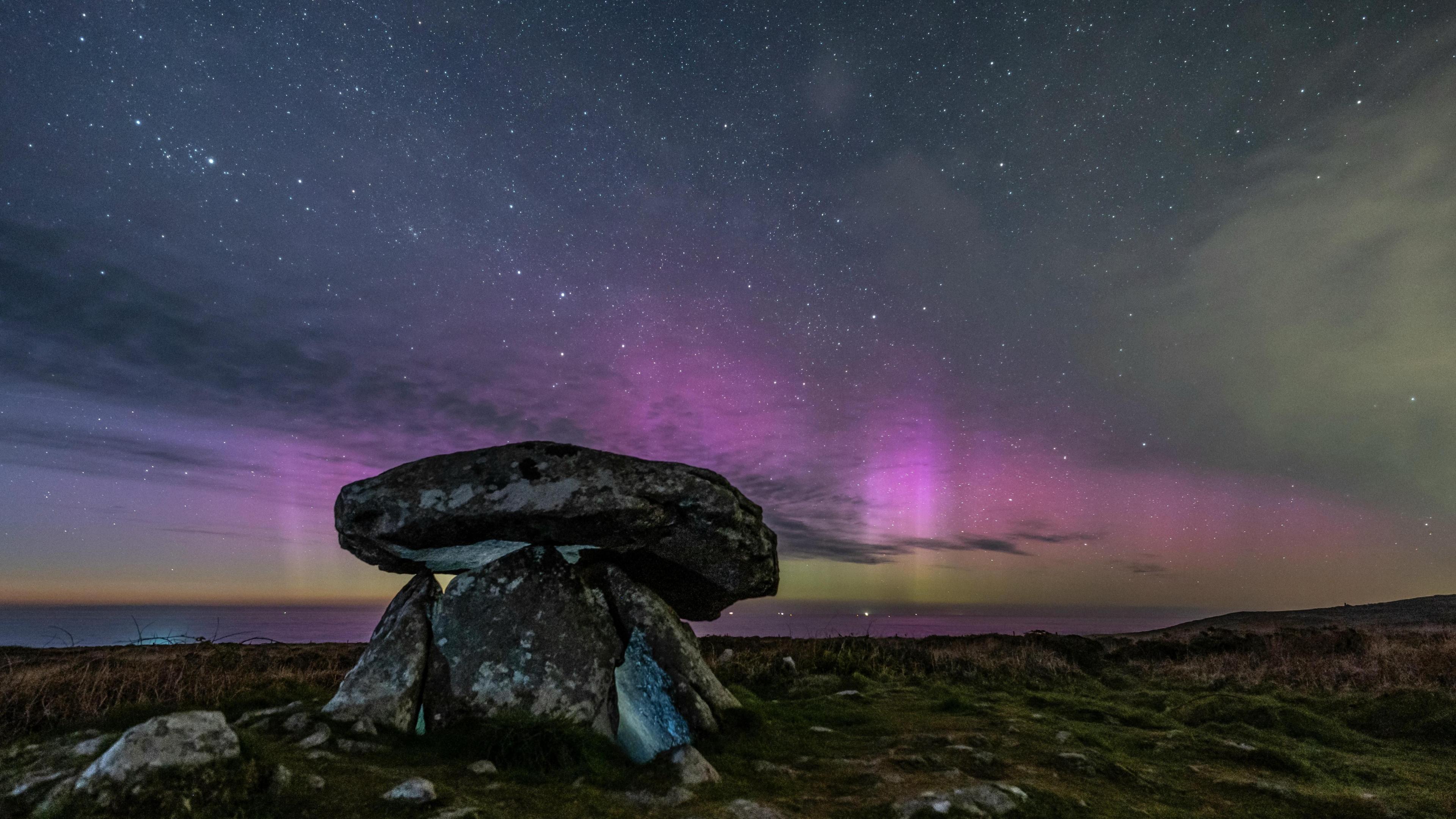Lyrid meteor shower visible for next few days

Light trails from streaking Lyrid meteors in US, in April 2020
- Published
We have had some wonderful celestial sightings this spring with a couple of nights of Northern Lights in recent weeks.
These events continue with the Lyrid meteor shower.
This happens every year during mid to late April, visible as short-lived streaks of light in the sky.
This year the Lyrids continue to be active until 25 April.

Five years ago both the Northern Lights and Lyrid meteors were visible in the sky over Howick, Northumberland
What is a meteor shower?
Meteor showers happen when dust from a passing comet or asteroid passes through the Earth's atmosphere. The tiny particles - roughly the size of a grain of sand - vaporise creating visible streaks of light.
As the Earth passes through the densest part of the dust stream more meteors are visible. For the Lyrids a maximum of around 18 meteors an hour are likely.
In some years, however, this can intensify and there can be 100 meteors every hour, but it is very difficult to know when this will happen.
Observations of the Lyrids date back around 2,700 years meaning it is one of the oldest-known meteor showers.
The fireballs are created by debris from Comet Thatcher, which takes more than 400 years to orbit the Sun and was discovered in 1861 by A. E. Thatcher.
They are named after the constellation Lyra and the radiant position, which is where the meteors appear to emanate from, is south-west of the star Vega.
Lyrids meteor shower 2025
How can I see them?
Generally speaking, the best time to see the shower is in the early morning.
This year's Lyrids coincide with the Moon's last quarter which should mean good viewing conditions overall - but it is best to avoid times when the moon is in the sky.
The best time to spot the meteors will be when the skies are at their darkest and clearest so stay away from light pollution if you can.
It will take around 15-20 minutes for your eyes to adapt to the darkness so be patient.
Wrap up warm and try not to crane your neck - perhaps sit back in a deckchair and make sure you take regular breaks.

The Lyrids are visible around the world. This was the meteor shower over Schermbeck, Germany, in 2020
Will the skies be clear?
On Thursday night you can expect the clearest skies of the week so far - except across Northern Ireland. But it's likely to be chilly so you'll definitely need a coat.
The exact hour-by-hour forecast will vary depending on where you are, so best to check your local forecast - as well as the sunrise and sunset times - on the BBC Weather website or app.
- Published2 February 2022

- Published17 April
